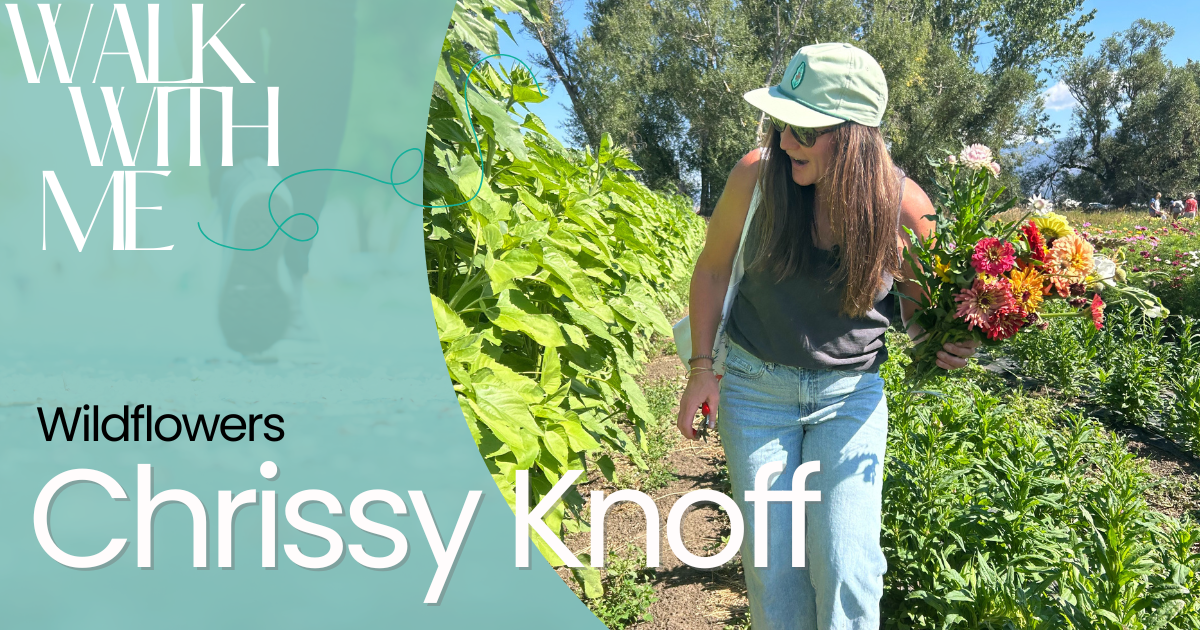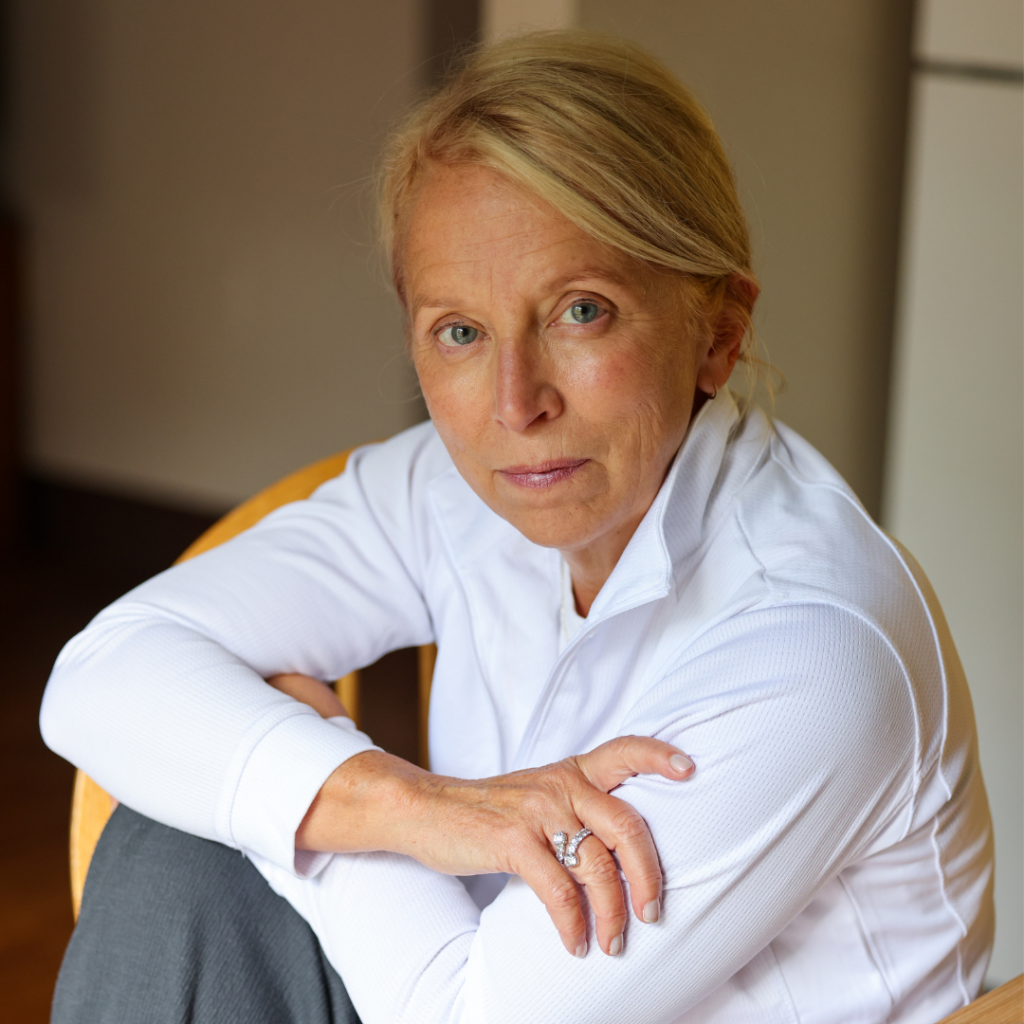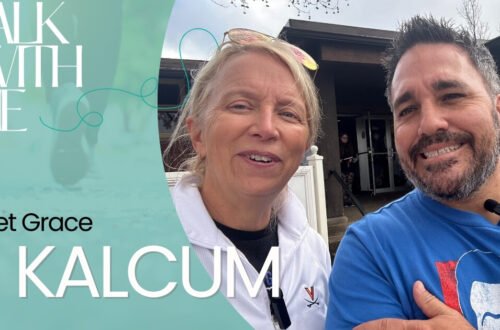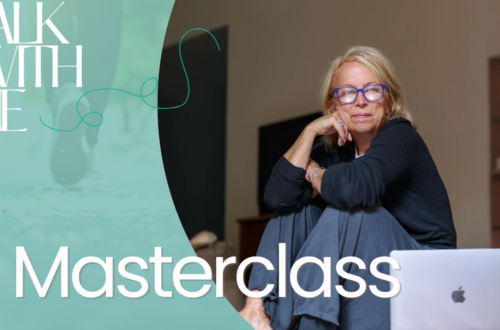Every once in a while you read something that resonates with you, and you carry it around – pulling it out when you need it, but always having it tucked away in your mind. This is one… “Try to see your child as a seed that came in a packet without a label. Your job is to provide the right environment and nutrients and to pull the weeds. You can’t decide what kind of flower you’ll get or in which season it will bloom.” Wendy Mogel, the author of The Blessing of a Skinned Knee shared this wisdom that I carry.
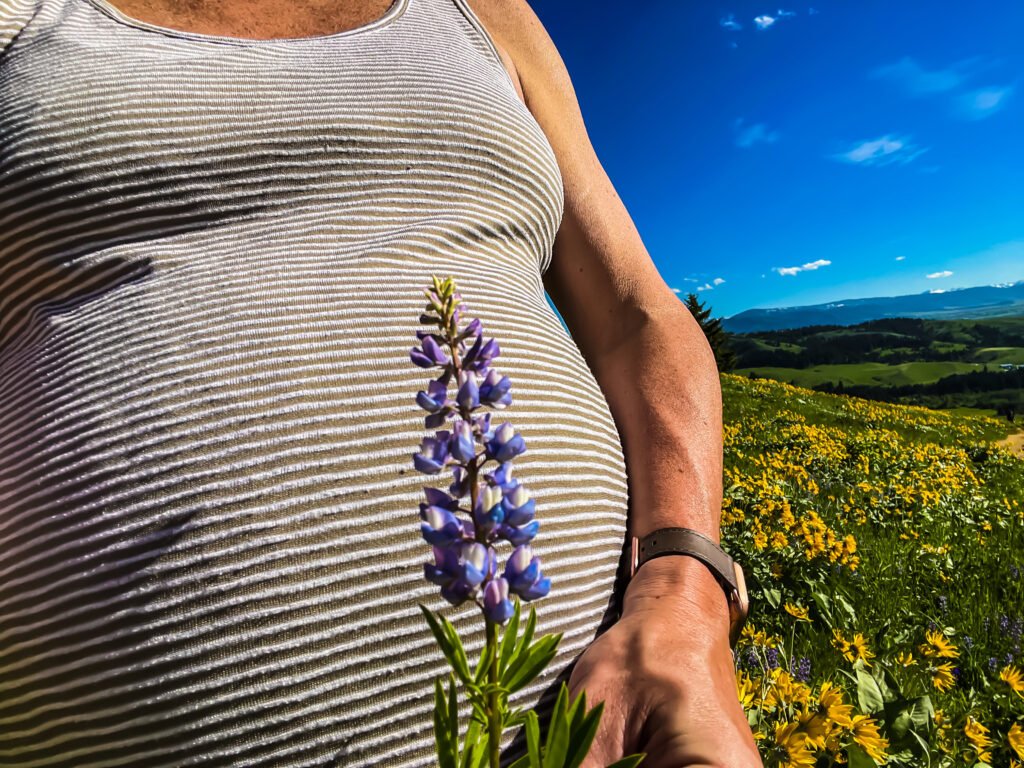
The teaching of the wildflower seeds asks us as parents to respect our children for the individuals they are. My daughter may not have been able to read as soon as others did, but one day it clicked – letters made sounds – sounds made words and words had meaning. My job as her parent was simple – provide the right environment where she could learn and recognize learning as a reward in and of itself — not keeping up with her classmates.
It is hard to remember that we don’t get to decide what kind of flower will bloom or when that will happen. When we embrace that, how could we be disappointed? Or spend so much time worrying?
Finally, after preaching the words I found leafing through Mogel’s wisdom, I decided to plant a wildflower garden this summer. It was difficult to find a packet of seeds with no label or promise of what was to come. In rows and rows of options, I found only one. I also found a moldy set of discarded bulbs in a ripped bag. I bought that too. I didn’t observe the way the sun played in my yard. I didn’t test the soil in various places. I didn’t analyze the clay or the acidity. I just picked a spot to which my eyes are naturally drawn. I cleared the grass in that spot and loosened the soil. I poured a bag of top soil over the loosened dirt and mixed my DYI compound.
I dug small holes for the bulbs and then simply scattered the seeds around them. I watered them but not as regularly as I should have. I let them be. I was resolved that it may take years for me to enjoy the fruits or should I say the flowers of my labor. Each day as I walked out my patio door, I would glimpse their way. One morning, I noticed tall green shoots. The next there was a vine-like green tubing protruding from another spot. I only pulled the grass that tried to grow up again – ironic, since I cannot get grass to grow in other areas of the yard. I plucked the clover out. Otherwise, I let all that sprouted simply grow.
I always deeply believed Mogel’s words, but I wasn’t truly living them until I planted my wildflower garden. I am so happy with every budding flower, every green leaf in all of their varieties… and the purple flowers that are just opening delight me. It doesn’t escape me when I tend my small garden that this is exactly how I should parent my daughters. Delighting in the unexpected ideas and kindnesses, marvelling at the way they grow, forgiving myself when I lose my balance standing up and step on a leaf. Unlike other planters, I didn’t arrange the color scheme, plant heights or trailing vines…this is a wildflower garden. I don’t control it, I care for it and I let it impress me.
When my former student, Chrissy Hoag (Knoff), asked if I wanted to pick flowers as an activity for our walk, I was exuberant. Yes, I would meet her and her son on a back road behind the airport in Bozeman, MT. I would not miss it. It would be a slight, subtle glimpse into being a grandparent for Chrissy had been like a daughter to me when I was a dorm mother at The Linsly School years ago. What I found on that dirt road was a front row seat to a mother delighting in her sons’ curiosity.
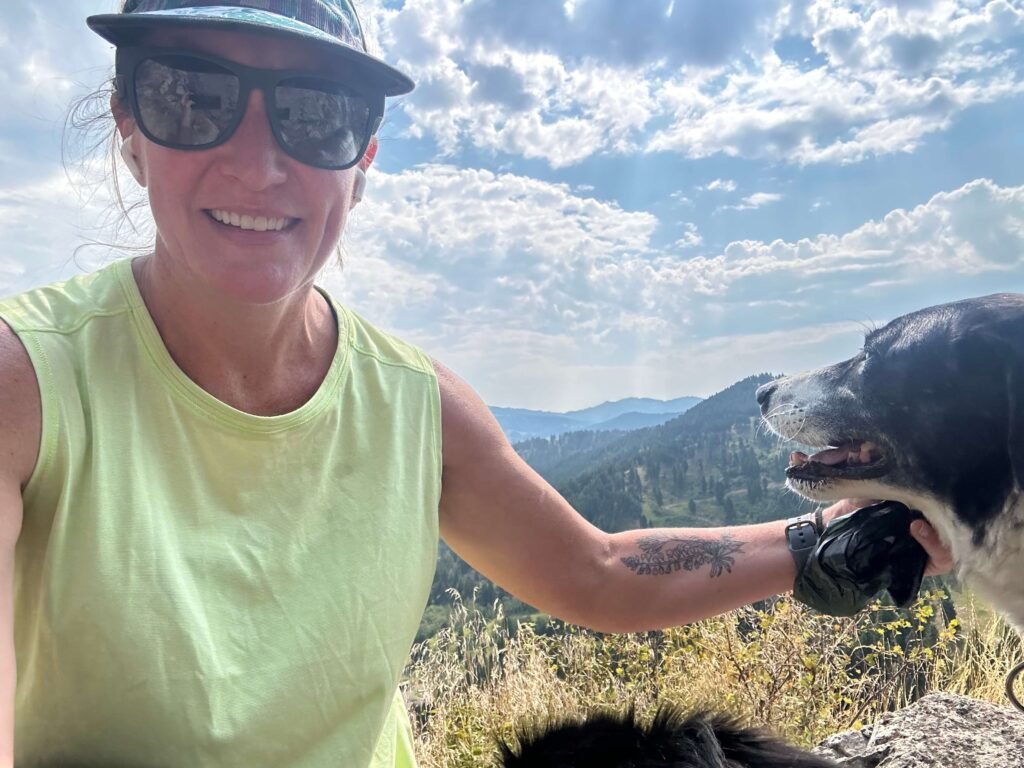
Chrissy: Do you want to come see the castle flowers with me? Yeah. Okay. But watch running with your claws.
Child: Look at these red flowers.
Chrissy: Those are cool. You could pick those. Do you see the… You could pick it way down here.
Child: This? Cool.
Chrissy: But remember, down at the bottom.
Child: Got one. Let’s pick some more of these I want these.
Chrissy: Okay.
Chrissy: Here, can I show you a different flower that’s in here that I love? These are called paper flowers. Do you see how it looks like a piece of paper? But go all the way down to the bottom.
Child: I am.
Chrissy: Okay.
Child: I go right down to the bottom.
Chrissy: But feel it. It feels different than the other flowers, huh?
Child: Oh, good. It’s like popcorn.
Just as natural paper flowers surprise us with their pointed petals unfolded in their own time — our children reveal their curiosities and personalities in seasons we cannot rush. There’s something deeply humbling about this uncertainty, each child holding secrets we cannot predict or control; each child deserving the richest soil our hearts can offer. As a social worker, Chrissy knows all too well that not every child experiences such trust.
Chrissy: CPS is this entity that I didn’t really understand. I didn’t have kids. I didn’t know anybody had ever dealt with CPS, but it was this idea of being a social worker, if you will. It changed my life, and I saw some really intense things that I don’t think I ever will unsee or unfeel. And it really pushed me into this idea of, you need to do more.
Liz: I have to ask, when you say you need to do more, do you mean you weren’t doing enough? Was it that feeling? That treading water and the water’s rising?
Chrissy: Yeah. And for the kids, for these people going into the system for the lack of the…
I mean, the system is broken, not because there aren’t great people.
I moved out here when I was 40, I had gone through a lot with being in child welfare and had a very particularly impactful case where a father died from a heroine overdose.
I was the last one to see him with his child the day before he overdosed. And it was just a really impactful case. I think about that kid a lot…. Right after that happened, I took a minute, stepped back, telescoped out, and was like, I think I need to think about my life in the way that I want it, not just this grind to keep doing something next.
I have to wonder if I chose to do a series of walks outside because I could simply no longer breathe on the treadmill of next and next and next.
Liz: Do you think your experience with social work impacts how you mother?
Chrissy: Yeah. And I think, honestly, I mean, I had him when I was 45. I was way more aware. …the level of gratitude to have him is pretty cool.
It is a whole other story to think about what I went through because I was 44 when we started the process. She said that your best chance of having a healthy baby is a donor egg because I can’t harvest your eggs here. They’d only do it past 42 in Montana, and we’d have to go to a different state, and we’d have to blah, blah, blah. And I was like, I had a plan. I was on a one-year trajectory. We’d pick out an egg donor and think about it for a night. And then the next day, all of her eggs, the lots of eggs would be gone.
And we joke about it. We were like, it’s like Tinder for eggs.
So the first egg completely failed, didn’t even stick at all. And then we had one egg left. And I remember when she called me and she said, well, it didn’t work. And I said, okay, sign me up for the next one. And she was like, well, wait a minute. Let’s talk to Adam, your husband. And I said, yeah, we can talk to him, but we’re going to do the next one.
Wait a minute? Nope. I know all too well that determination to have a child. I wasn’t 45. I was only 35, but still considered ‘advanced age.’ You find yourself bargaining with time, with your body, with whatever forces might be listening once you embark through the maze of infertility treatments. You travel through your days with syringes and hormones – scanning every public bathroom for the red disposal box. You learn there are enough follicles, but not as many eggs as we would like, but still you hold fast to hope. Friends and family hover at the edges with well-meaning questions you can’t answer …yet. After embryos are transplanted in a very sterile, clinical, scientific setting, you shift back to acupuncture, meditation and bargains. You research obsessively: what’s a good first beta hCg level, how quickly should it double, what number is ideal? You visualize that number. 25, 50, 200 – your future being quantified. You do all the things you can – like a die-hard fanatic moving through superstitions before the big game – because doing nothing at all is incomprehensible.
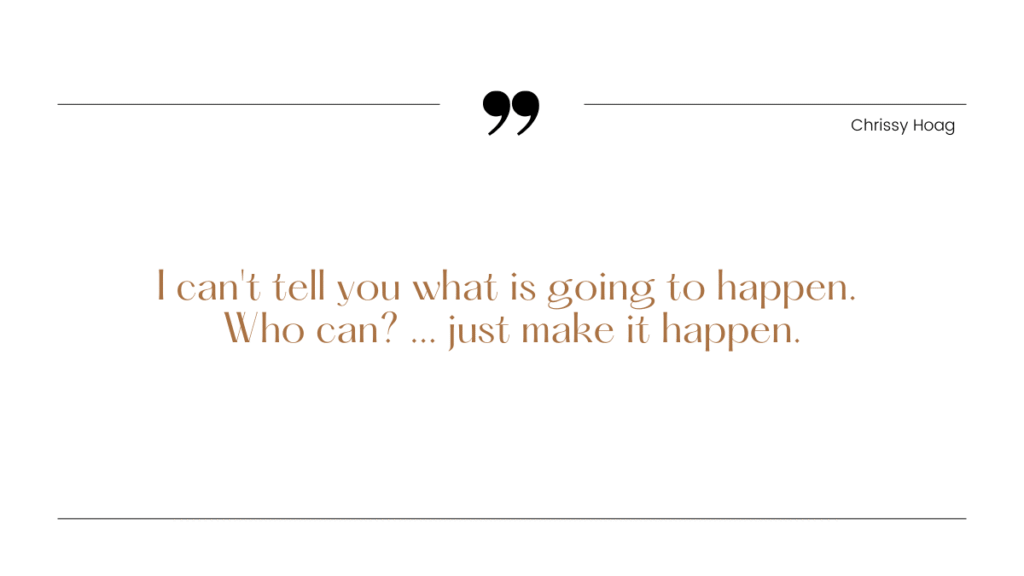
Chrissy: And, yeah, three years later, here he is.
Liz: Had you given up on motherhood at one point?
Chrissy: Oh, yeah. Yup. I really did not think I was ever going to get married. I didn’t think I was ever going to have kids. And I had a very good friend of mine that I’ve known for many years. Her name’s Carol. And at one point, I think it was right around age 30 or so I said to her, I was just really upset, I’m never going to get married, and I’m never going to have kids, and never, never, never, never. And she said, Well, I can’t tell you what is going to happen. Who can? But she said, I can tell you that if you want to be with kids, and you want to work with kids, and you want to be around kids, … just make it happen. And she said, You can still feel really fulfilled if you are around kids.
Liz: I love the advice that if this is what makes your heart sing, make it happen.
Chrissy: So the journey has been pretty wild. I mean, one of the things that’s been so cool is actually so many years later, now this June, finishing my master’s in social work was pretty emotional for me. I think about when I started this so many years ago. And it’s wild to now be doing what I’m doing and weirdly feeling like I can advocate so much better, I think, because I can say, well, I have a master’s in social work and I have a clinical license and people listen to you differently then when you just say, I have ‘15 years of experience being in some pretty tough spots and having to advocate really hard for people.’
Chrissy: But I think also having a tiny human and knowing that you want them to be a good person, too, has changed a lot for me.
Liz: There’s something about having your own and having the feeling of I want what’s best, and I’ve seen what can happen.
Chrissy: Yeah.
Liz: So I want to make it better for everybody, or at least as many as I can. So you established …
Chrissy: a pediatric social work position where I really advocated to have some support for our perinatal population, mostly because I think, one, it’s just really lacking, and two, it’s just really important, and resources are hard here.
and lots of people are moving here, and they don’t realize we don’t have anything. We don’t have services. We don’t have Behavioral Health Support.
As we talked about the families she was helping, the first responders who needed their own support and the children we couldn’t save try as we might, I couldn’t help but think of the wildflowers. The tall sunflowers that reach as high as they can, that turn their faces to the sun no matter what. The tunnels and safe places and shade they create by growing together even with weeds growing at their roots.
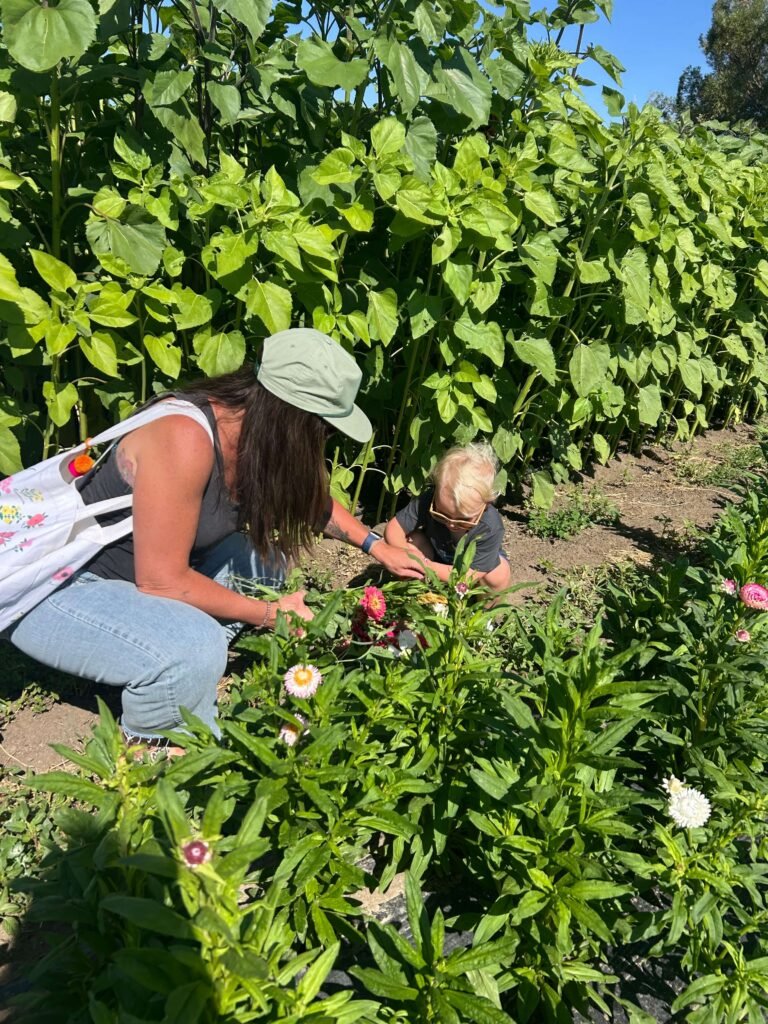
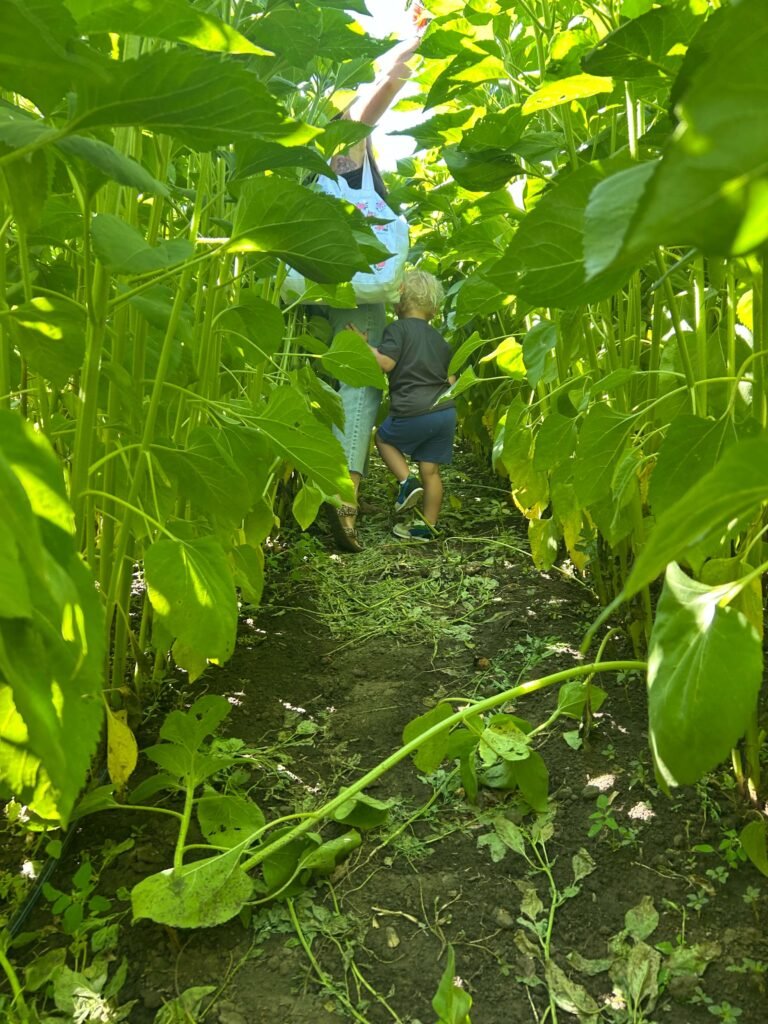
Child: There’s another tunnel right here.
Chrissy: Oh, that’s cool.
Child: And more tunnels.
Chrissy: Those are shorter tunnels. I bet you could get through those tunnels all by yourself.
Child: And you come. I move this stuff for you.
Chrissy: What, babe?
Child: I moved this stuff for you.
Chrissy: You moved that stuff for me? Oh, thanks, sweet love.
Child: You’re welcome.
I am reminded of my earlier walk with Sharon – that we ache to return to these early days when our children relished our company and wanted us to come too. We marvel at the adults they are becoming. We delight as their curiosities bloom into passions. No longer able to pull weeds and water the ground as they plant themselves in other areas, we advise and support. But… sometimes… in rare moments… as happened just this summer … Grace or Ella reach over to hold my hand as we walk. Not wanting to make a big deal of it, I silently send up a prayer of gratitude for the reminder of their innocent, sweet love.
They are always our children. As is my habit, I joke a bit about that.
Liz: I have to tell you, I have a 21 and a 17-year-old and dating a 65-year-old. And the one thing I say is I I should have given up the diaper bag. Everybody still needs a wipe and a snack and a cool drink.
Chrissy: Yes. Yeah.
…especially when you are tending your garden in the heat of the sun, nurturing the children who burst into your days like an unexpected summer thunderstorm—delighting you with their wonder, frustrating you with their fierce independence, amazing you with sudden wisdom. Did I tell you my wildflower garden is blooming against this merciless August heat? I watch it all unfold and I cannot wait to see what blooms next and what transforms.
My simple unmarked packet wildflower garden teaches me what I need to know about motherhood: these two souls entrusted to me—my beautifully impossible gifts— will bloom exactly as they are meant to, in their own time, in their own magnificent way.
Child: You’re welcome.

